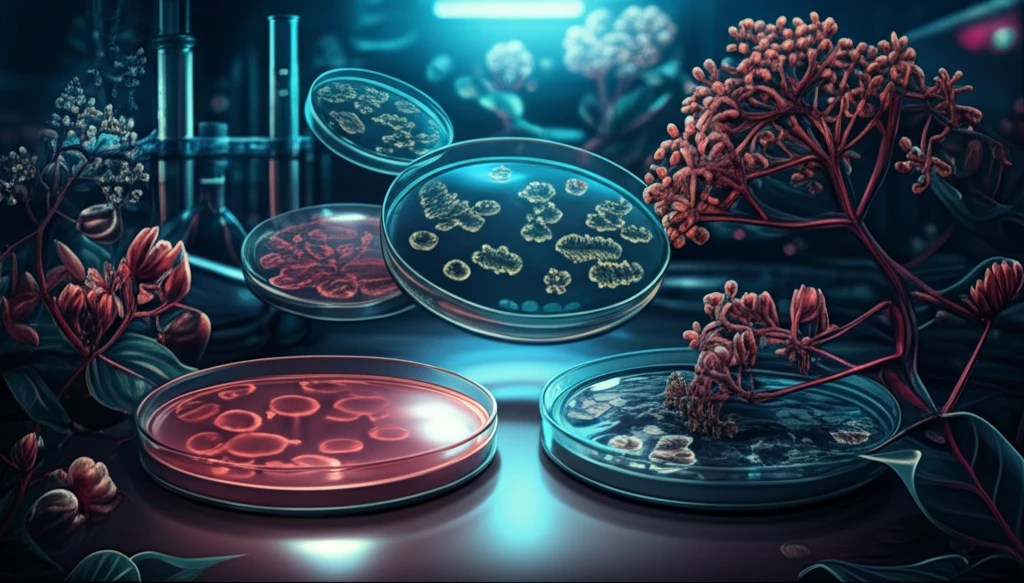
Is Conessine the Future of Food Safety? Unlocking the Potential of This Natural Germination Inhibitor
"Discover how conessine, a natural compound found in the Holarrhena floribunda plant, could revolutionize food preservation by effectively inhibiting the germination of harmful Bacillus spores."
In the food industry, bacterial spores represent a significant challenge. These hardy forms of bacteria, such as Bacillus cereus and Bacillus stearothermophilus, are notoriously resistant to the sterilization methods commonly employed in food processing. Their ability to survive harsh conditions and later germinate can lead to food spoilage and potential health risks.
Traditional methods of eliminating bacterial spores often involve high temperatures, sometimes combined with pressure. While effective, these processes can degrade the quality of food, leading to significant losses in essential nutrients like proteins and vitamins. Furthermore, some food products are pasteurized rather than fully sterilized to preserve their organoleptic properties, which unfortunately leaves a concerning number of spores viable.
A recent study published in the African Journal of Microbiology Research sheds light on a promising alternative: conessine. This compound, isolated from the methanolic extract of the Holarrhena floribunda plant, has demonstrated the ability to inhibit the germination of Bacillus spores. This article dives into the research, exploring the potential of conessine as a natural and effective tool for enhancing food safety.
How Does Conessine Inhibit Spore Germination?

The study investigated the activity of conessine against two common Bacillus species: Bacillus cereus T and Bacillus stearothermophilus CNCH 5781. Researchers treated spores of these bacteria with varying concentrations of conessine, adjusting factors like temperature, pH, and exposure time to determine the optimal conditions for inhibition.
- Concentration Matters: Conessine at concentrations of 50 and 100 µg/ml significantly reduced the germination of both B. cereus T and B. stearothermophilus CNCH 5781 spores when applied for 20 minutes.
- Temperature Sensitivity: The optimal temperature for conessine activity varied depending on the bacterial species. For B. cereus T, 30°C was the most effective temperature, while B. stearothermophilus CNCH 5781 spores were best inhibited at 60°C.
- pH Influence: Conessine's activity was also sensitive to pH levels, with pH 6 proving to be the most effective for inhibiting germination in both bacterial strains.
- Time-Dependent Activity: The duration of exposure to conessine significantly impacted its effectiveness, suggesting that the compound requires a certain amount of time to interact with the spores and prevent germination.
The Future of Conessine in Food Safety
The research on conessine opens doors for innovative food preservation strategies. By understanding the specific conditions under which conessine effectively inhibits spore germination, the food industry can develop targeted applications to enhance the safety and extend the shelf life of various products. While further research is needed, conessine holds significant potential as a natural alternative to traditional food preservation methods, offering a path towards safer and more sustainable food production.
